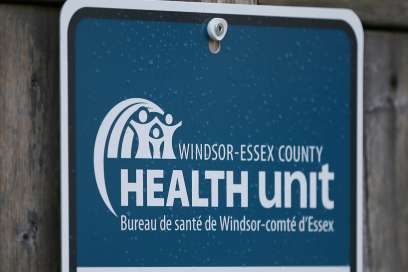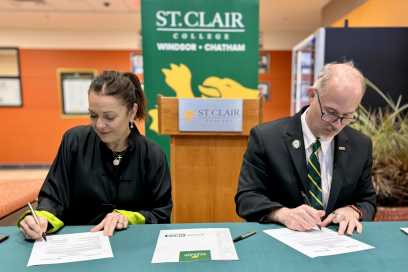ERCA To Host Free Tours Showcasing Restoration And Pollinator Habitat Creation
Tuesday July 28th, 2015, 11:00am
Hello time traveller!!
This article is 3593 days old.
The information listed below is likely outdated and has been preserved for archival purposes.
This Spring, the Essex Region Conservation Authority has planted more than 80,000 trees and restored more than 125 acres of habitat in partnership with landowners across the region.
Now they are looing forward to showcasing some of these projects with those who might be interested in undertaking some restoration in the future. “If you wish to restore one acre of land or more to natural habitat, ERCA can cover up to 90% of the cost,” says ERCA’s Forester Rob Davies. “Join us at one of our the free tours to learn more about the habitat restoration options and grant funding available for your property.”
Some of the many projects ERCA has completed in the past include creating wetlands adjacent to farm properties, recreating forest habitat that can be used for recreational purposes while benefitting wildlife and the environment. “There has also been a lot of interest from agricultural partners and other landowners about native prairie plantings and the creation of pollinator habitat,” explains Kate Arthur, ERCA’s Restoration Biologist.
“Creating pollinator habitat is one of the items specifically identified in the 2015 Species At Risk Farm Incentive Program, which provides support to agricultural landowners in completing habitat creation and Best Management Practices that support species at risk,” adds Michael Dick, P. Ag, CCA-ON and Agricultural Technician. “Farmers can help stem the population decline of pollinators, like the honeybee, by establishing areas on their farms that pollinators can use for foraging and nesting. Windbreaks, shelterbelts and un-mowed buffer strips along ditches all contribute to pollinator habit. Buffer strips and waterways can be seeded with native wild flower mixes to enhance habitat. Leaving existing natural areas intact, such as natural windbreaks and field margins is important as these mature features already provide habitat for pollinators.” Pollinator health is a specific indicator identified in the Farmland Health Checkup, which is part of the new Great Lakes Agricultural Stewardship Initiative (GLASI) funding for farmers.
Farmers and landowners who are interested in learning more can register to join the Essex Region Conservation Authority for these free tours on Wednesday, July 29th from 6pm to 7pm at the Cedar Creek Provincial Park on the 3rd Concession just off the Arner Townline. The project showcases their tree planting program and native pollinator habitat between tree rows.
Although the tours are free, guests must pre-register at www.ercarestoration.eventbrite.ca, or call (519) 776-5209 ext. 310 or 303 for assistance. Once registered, they will be provided with more details and driving directions.
























